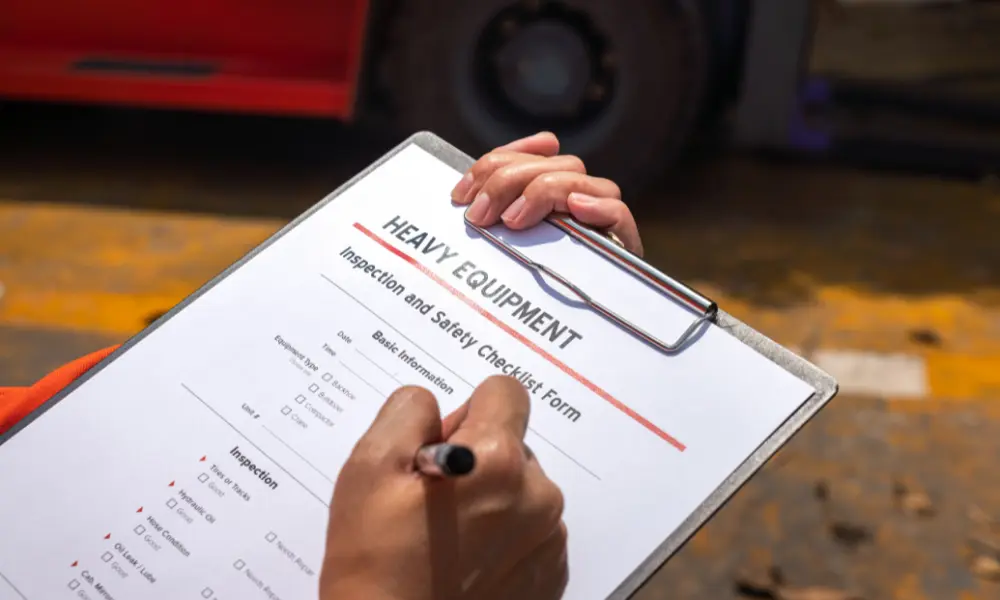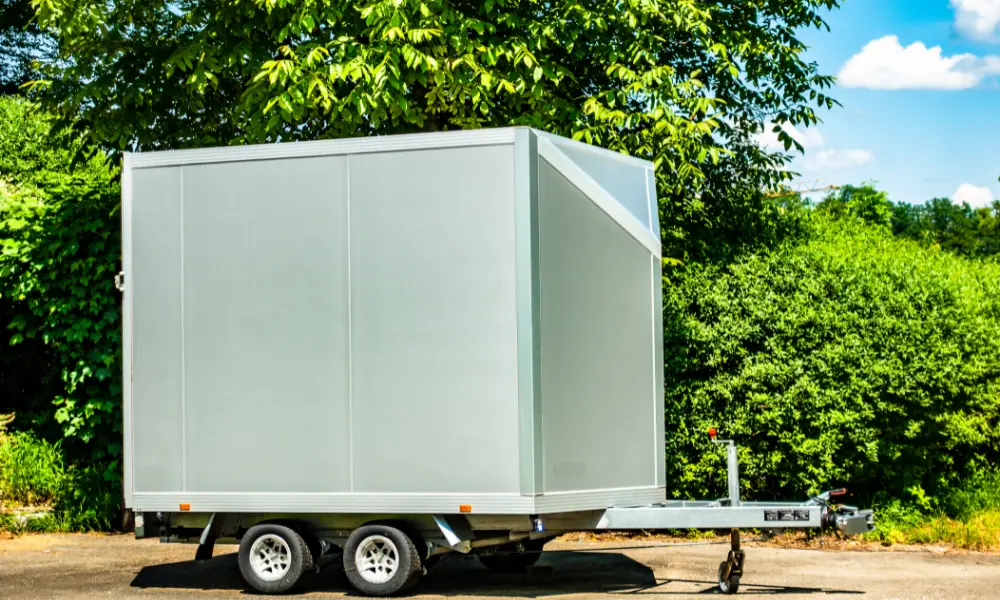Getting your car inspected in Louisiana can seem like a hassle, but it’s essential to ensure your safety on the road. In Louisiana, motor vehicle inspections check key safety features and vehicle emissions to make sure your car is roadworthy. Whether you’re worried about brakes, emissions, or other safety standards, we’ll break down everything you need to know to pass your inspection smoothly. Keep reading to solve your vehicle inspection woes.
Louisiana Vehicle Inspection Overview
In Louisiana, vehicle inspections ensure that vehicles are safe and environmentally friendly. Inspections are conducted at privately-owned businesses approved by the Louisiana Department of Public Safety.
Purpose of Inspection
The main goal of vehicle inspections is to make sure vehicles are safe to drive and meet emissions standards. You need to pass these inspections to get an inspection sticker, which indicates your vehicle is roadworthy.
The Department of Public Safety oversees these inspections, ensuring rules and standards are met. This helps reduce accidents and improve air quality. Focusing on both safety and emissions, inspections benefit you and everyone else on the road.
Types of Inspections
There are two types of vehicle inspections in Louisiana: the Safety Inspection and the Emissions Inspection.
The safety inspection checks various parts of your vehicle, like brakes, lights, and tires, to ensure they’re working properly. This inspection is crucial for preventing accidents due to mechanical failures.
The emissions inspection, on the other hand, aims to control air pollution. In specific areas, your vehicle will be checked for compliance with emissions standards.
Both inspections must be passed to legally drive your vehicle. If your vehicle doesn’t pass, you’ll get one free re-inspection within 30 days if done at the same station. This ensures you can fix the issues and get back on the road safely.
Inspection Requirements
When getting your vehicle inspected in Louisiana, it’s essential to know what components will be checked. These inspections include verifying your car’s safety features, emissions control systems, necessary documentation, and vehicle eligibility.
Safety Components
Inspectors will examine several critical safety components of your vehicle. The brakes are tested by driving at 20 mph and applying them slowly. If your brakes don’t perform well, it could cause your vehicle to fail the inspection.
- Lights: All front and rear lights, including indicators and brake lights, must function correctly.
- Tires: Your tires should have adequate tread depth and be free from significant damage.
- Windshield and Wipers: Cracks in the windshield and faulty wipers can also lead to a failed inspection.
- Seat Belts: All seat belts must be in working order because they are crucial for passenger safety.
Emissions Control Systems
Your vehicle’s emissions control systems reduce harmful pollutants. The state of Louisiana requires all vehicles in specified areas to pass an emissions test to comply with the federal Clean Air Act Amendments.
- Smog Check: A smog check will be performed, and the results are uploaded automatically to the Louisiana Office of Motor Vehicles (OMV).
- Repairs: If you fail, you will get instructions on how to get your vehicle repaired and retested to meet emissions standards.
- Emission Components: The inspection includes parts like the catalytic converter, oxygen sensors, and exhaust system.
Documentation Required
You need to bring specific documents to the inspection station. Having all necessary paperwork will ensure a smooth process.
- Proof of Liability Insurance: You must provide current and valid proof of insurance coverage.
- VIN Verification: The vehicle identification number (VIN) should match those on your registration and insurance documents.
- License Plate: Your license plate must be current and properly secured to your vehicle.
- Driver’s License: A valid driver’s license is often required to complete the inspection.
Vehicle Eligibility
Not all vehicles need the same type of inspections. The kind of inspection your vehicle requires depends on various factors like age, type, and location.
- Age of Vehicle: Older vehicles often need more rigorous inspections. Newer cars might be exempt from certain tests.
- Type of Vehicle: Trucks, commercial vehicles, and personal vehicles might have different inspection requirements.
- Location: Vehicles in the five-parish Baton Rouge ozone nonattainment area need to comply with specific local regulations.
By knowing what to expect and preparing your vehicle in advance, you can ensure a smooth and successful inspection process.
Inspection Process
To get your vehicle inspected in Louisiana, you’ll need to find an approved inspection station and understand the step-by-step procedure. After the inspection, you’ll receive documentation summarizing the results.
Finding an Inspection Station
In Louisiana, inspections are conducted in privately-owned businesses approved by the Louisiana Department of Public Safety and Corrections. Look for an inspection station near you by checking online directories or asking local auto repair shops. Most stations accept walk-ins, but it’s a good idea to call ahead and confirm availability. Standard hours are typically Monday to Friday, 8:00 am to 4:30 pm. Make sure the station is equipped with certified mechanic inspectors to ensure your vehicle gets a thorough inspection.
Step-by-Step Procedure
When you arrive at the station, you’ll first need to provide proof of valid insurance. The certified mechanic inspectors will then conduct a comprehensive check of your vehicle. This includes a road test where the vehicle is driven at 20 MPH, and the brakes are applied slowly to test their effectiveness. The inspection covers essential safety items such as brakes, lights, mirrors, and tires to ensure they are working correctly and do not pose any hazards. The whole process typically takes about 30 minutes, depending on the station’s workload.
After Inspection Completion
Once your vehicle passes the inspection, you’ll receive an inspection certificate and a Vehicle Inspection Report (VIR). The VIR details the results and any issues found during the inspection. If your vehicle fails, the report will specify the items that need fixing. You won’t be charged sales tax or late penalty fees for the inspection. Address the necessary repairs and return to the station for a follow-up inspection. Keep the inspection certificate in your vehicle, as it proves your compliance with Louisiana’s safety regulations.
Common Reasons for Inspection Failure
Vehicle inspection failures in Louisiana often stem from issues with your car’s safety features or emissions control systems. Understanding the key problem areas can help you avoid common pitfalls and ensure your vehicle passes the inspection.
Safety Feature Failures
Safety feature failures are frequent causes of inspection issues. Brakes are among the most critical components. If your brakes are worn down or not functioning well, your car won’t pass the test. Inspectors often check that the brakes work effectively when you drive at 20 MPH.
Windshield wipers are another common reason for failure. If they are torn or don’t operate correctly, they must be replaced.
Additionally, your car’s steering and mirrors are inspected. Poor steering control or damaged mirrors can result in a failed inspection. Effective steering is key to safe driving, and mirrors help you see surrounding traffic.
Emissions Test Failures
Your vehicle’s emissions system is a crucial part of the inspection. One primary component checked is the Exhaust Gas Recirculation System. If this system is malfunctioning, your car will likely fail the emissions test.
Another aspect tested is the Gas Cap Integrity Test. A damaged or ill-fitting gas cap can cause fuel vapors to escape, leading to a failed inspection. Inspectors also review the vehicle’s overall emission levels to ensure compliance with state regulations.
How to Address Failures
To address these failures, start by having any noted issues repaired promptly. If your car fails due to brake issues, replacing the brake pads may resolve the problem. For windshield wipers, installing new wipers should be sufficient.
For emission-related failures like the Exhaust Gas Recirculation System, a mechanic can diagnose and fix the malfunctioning parts. Similarly, replacing a faulty gas cap is a simple but effective solution to pass the integrity test.
Regular maintenance and addressing one issue at a time can ensure your vehicle is inspection-ready.
Inspection for Out-of-State Vehicles
When moving to Louisiana or even just temporarily staying there, you need to know the specific vehicle inspection requirements. Different rules apply based on your residency status and where your vehicle is registered.
New Residents
If you’re a new resident in Louisiana, you must get your vehicle inspected within 30 days of establishing residency. This means your vehicle should meet Louisiana’s safety and emissions standards. Establishing residency involves things like getting a Louisiana driver’s license and registering your vehicle in the state.
You’ll need to visit an approved inspection station. These are often privately owned garages or repair shops authorized by the Louisiana Department of Public Safety. Your vehicle must also have a valid temporary license plate if it hasn’t been registered in Louisiana yet.
Inspection Process for Out-of-State Vehicles
If your vehicle is registered out-of-state but you need an inspection in Louisiana, you can still have it inspected. Your vehicle must meet the same requirements as Louisiana-registered vehicles. This includes having a current, non-expired license plate.
You will need to visit an approved inspection station. These stations follow strict guidelines to ensure your vehicle complies with Louisiana’s safety and emissions standards. For more details, you can refer to the Louisiana Department of Environmental Quality for comprehensive FAQs on inspections.
If your vehicle fails the inspection, you’ll typically be given a grace period to make necessary repairs and get re-inspected. In some cases, you may also receive a temporary license plate while you address the issues.
Fees and Legal Aspects
Understanding the costs, penalties, and legalities of vehicle inspections in Louisiana is crucial. These rules are enforced to ensure safety and compliance.
Cost of Inspection
The fee for a vehicle inspection in Louisiana varies by the type of inspection. Typically, the cost for safety and commercial inspections follows a standard rate set by law. For instance, a regular safety inspection might cost around $10, while a commercial inspection may be higher. Importantly, no sales tax or late penalty fees are charged on these inspections.
A rejected vehicle is eligible for one free re-inspection if it returns to the same inspection station within 30 days. This can save you money and ensure that your vehicle meets all required standards.
Penalties for Non-Compliance
Failing to comply with Louisiana’s vehicle inspection requirements can lead to significant penalties. Law enforcement agencies have the authority to issue fines if your vehicle does not have a valid inspection sticker. The fines can vary but are generally hefty enough to encourage compliance.
In some cases, driving without a valid inspection sticker can result in points against your driver’s license. This could impact your insurance rates and cause further legal troubles. Ensuring your vehicle passes the required inspections can help you avoid these penalties.
Insurance and Legal Requirements
A valid vehicle inspection is often a prerequisite for maintaining your vehicle registration and insurance. Without a current inspection, you may not be able to renew your vehicle registration certificate. This can lead to additional fines and legal difficulties.
Moreover, insurers may view a lack of inspection as increased risk, potentially raising your premiums. Maintaining up-to-date inspections is essential for staying on the right side of the law and keeping your insurance costs manageable.
Abiding by these rules not only ensures your safety but also helps you avoid legal headaches. For more detailed information, you can refer to the Louisiana Motor Vehicle Safety Inspection Program.
Inspection for Various Vehicle Types
Different types of vehicles in Louisiana have unique inspection requirements designed to ensure safety and environmental compliance. This section breaks down what you need to know for each type.
Motorcycles and Trailers
When it comes to motorcycles and trailers, the inspection focuses on key safety features. For motorcycles, the process includes checking the brakes, lights, tires, and exhaust systems. Ensuring your motorcycle’s lights and brakes function correctly is crucial for both safety and compliance with state laws.
For trailers, inspectors will check the condition of the hitch, tires, and lighting systems. Properly functioning brakes, if your trailer is equipped with them, are also inspected. It’s essential to ensure your trailer is securely attached to prevent accidents.
Commercial Vehicles
Commercial vehicles have stricter inspection standards due to their size and frequent long-distance travel. Inspections cover brake systems, steering mechanisms, lights, and tires. The approach ensures that commercial vehicles are not only safe for drivers but also for other road users.
During the inspection, emissions are also checked, especially for trucks, making sure they meet environmental standards. If you’re a commercial driver, keeping your vehicle in top condition is essential to pass these inspections smoothly.
School Bus Inspections
School buses undergo a thorough inspection process. Inspectors look at multiple safety features, including the engine, brakes, lights, and emergency exits. The seats and seatbelts are also checked to ensure they are in good condition.
Additionally, school buses must meet specific sanitary standards, which include a clean and safe environment for children. The inspection guarantees that the bus is reliable and safe for daily transportation of students.
By keeping up with these requirements, you ensure that your vehicle, be it a motorcycle, trailer, commercial vehicle, or school bus, meets Louisiana’s standards for safety and performance.
Special Cases and Exceptions
Some vehicles and situations require special handling during the Louisiana vehicle inspection process. This includes specific protocols for re-inspections, obtaining duplicate or temporary stickers, and various exemptions or waivers.
Re-inspection Protocol
If your vehicle fails its initial inspection, you may need to visit an Emissions Challenge Station for further checks. After making necessary repairs, you should return for a retest. It’s crucial to carry all the documents including previous inspection reports, repair receipts, and any notes from the mechanic.
Vehicles are usually allowed one free re-inspection within a certain period, typically 30 days. If you’re going back for a retest, confirm the time frame with your inspection station to avoid any extra costs. Compliance with this protocol ensures your vehicle meets safety and emissions standards.
Duplicate and Temporary Stickers
If your inspection sticker is lost, stolen, or damaged, you need a duplicate inspection sticker. Visit the inspection station where the original inspection was performed and provide proof of the initial inspection. A small fee may be charged for issuing a duplicate sticker.
In certain situations, you might need a temporary sticker, especially if you’re waiting for parts or repairs to be completed. Temporary stickers are valid for a short period, usually not exceeding 30 days. Ensure you keep the temporary sticker visible, generally placed on the windshield.
Exemptions and Waivers
Not all vehicles are required to undergo standard inspections. Certain vehicles, like state-owned cars displaying a public license plate, are often exempt from standard inspection procedures. Exemptions may also apply to new vehicles that have low mileage, usually under 12,000 miles within the first year of ownership.
Additionally, you may be eligible for waivers due to specific hardships or emissions testing failures that can’t be resolved despite good faith efforts. Always check with the Louisiana Department of Public Safety and Corrections for detailed exemption and waiver criteria.















